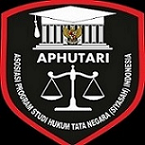Putusan MK Atas Pengujian Formil Undang-Undang Nomor 11 Tahun 2020 Tentang Cipta Kerja
Abstract
The problem in this research is related to the Constitutional Court Decision Number 91/PUU-XVIII/2020 on the Review of Law Number 11 of 2020 concerning Job Creation. This type of research is library research through a normative juridical approach. The data sources used are primary and secondary legal materials. Primary legal materials consist of the Constitutional Court Decision Number 91/PUU-XVIII/2020, Law Number 24 of 2003, Law Number 12 of 2011). While secondary legal material includes official documents consisting of scientific articles, books, journals. Data collection techniques in this study were case study and documentation methods. Furthermore, the data analysis technique used in this study is qualitative analysis that is collecting secondary and primary legal materials on the Constitutional Court's decision related to the problem being studied. The results of this study state that the review of Law Number 11 of 2020 concerning Job Creation refers to the provisions of Law Number 12 of 2011 concerning Formation of Legislation. In the process of its formation it did not apply the principles of forming good laws, including not applying the principle of transparency. So that it does not provide space for participation for the public to participate in discussing the law. The consideration of the Constitutional Court judges in composing the decision is the consideration of justice through Conditional Unconstitutional. Then the legal consequences of the formation of the Job Creation Law included cutting severance pay, termination of employment, no maternity leave and miscarriages for women workers.
Keywords
Full Text:
PDFReferences
Refrensi
- a. Sumber Buku
Bachtiar, Metode penelitian HukumTanggerang Selatan: Unpam Press, 2018.
Mas Marwan, Hukum Acara Mahkamah Konstitusi Bogor: Ghalia Indonesia, 2017.
Purnomo Agus, Dinamika
Hukum Perjanjian Perkawinan di Indonesia Malang: PT Cita Intrans Selaras, 2021.
MD Mahfud, Politik Hukum di Indonesia Depok: PT. Raja Grafindo Persada, 2018.
Indrayana Denni, dkk, Putusan Mahkamah Konstitusi atas Undang-Undang Cipta Kerja: Konsekuensi dan Antisipasinya Jakarta: Integrity Legal Update, 2021.
M Citra Referandum, dkk, UU Cipta Kerja dan Aturan Pelaksananya: Upaya Perampasan Hak-Hak Rakyat atas Tanah dan Hak-Hak Pekera Jakarta: Lembaga Bantuan Hukum, 2022.
Moleong Lexy J., Metode Penelitian Kualitatif Bandung: PT Remaja Rosdakarya, 2004.
Marzuki Peter Mahmud, Penelitian hukum Jakarta: Kencana, 2014, hal. 132-133.
- b. Sumber Jurnal
Dalimunthe, Dermina. “Perkembangan Perlindungan Hukum Terhadap Perempuan/Istri Hingga Lahirnya UU No. 23 Tahun 2004 Tentang Penghapusan Kekerasan Dalam Rumah Tangga.” Yurisprudentia Vol. 1, no. No. 1 (tahun 2016).
———. “Proses Pembentukan UU Menurut UU Nomor 12 Tahun 2011 Tentang Pembentukan Peraturan Perundang-Undangan.” Al-Maqasid Vol. 4, no. No. 2 (Tahun 2018).
Daulay, Baharuddin Soleh dkk. “Pengupahan Penggilingan Padi dalam Kajian Fiqh Muamalah.” El- Thawalib Vol. 1, no. No. 1 (Tahun 2020).
Gunawan, Syafri. “Historis Kajian Hak Azasi Manusia didalam Hukum Islam.” El-Qanuny Vol. 6, no. No. 2 (Tahun 2020).
Harahap, Nurhotia. “Hak dan Kewajiban Pekerja dalam undang-undang ketenagakerjaan.” Al- Maqasid: Jurnal Ilmu-Ilmu Kesyariahan dan Keperdataan Vol. 6, no. No. 1 (Taahun 2020).
Hasibuan, Putra Halomoan. “Proses Penemuan Hukum.” Yurisprudentia Vol. 2, no. No. 2 (Tahun 2016).
Kurniawan, Puji. “Pandangan Hukum Progresif dan Maslahah Mursalah terhadap Putusan Mahkamah Konstitusi Nomor 46/PUU-VIII/2010 Tentang Pengujian Undang-Undang Nomor 1 Tahun 1974.” Yurisprudentia: Jurnal Hukum Ekonomi Vol. 7, no. No. 2 (Tahun 2021).
Lubis, Ihsan Helmi. “Putusan Mahkamah Agung Nomor. 37/P/Hum/2017 (Ditinjau Dari Asas Keadilan).” Yurisprudentia: Jurnal Hukum Ekonomi Vol. 7, no. No. 1 (Tahun 2021).
Mustafid, Ahmad IIfan. “Kajian Sosio Legal dalam Pemahaman Syariat Islam dan Hukum Sosial Masyarakat terahdap Penguatan Perkawinan Vol. 7 No. 1 Tahun 2021, hlm. 2.” El-Qanuny:Jurnal Ilmu-Ilmu Kesyariahan dan Pranata Sosial Vol. 7, no. No. 1 (Tahun 2021).
Nasution, Muhammad Arsad. “Perlindungan Pekerja Menurut Hukum Islam (Analisis Terhadap Al-Qur’an Dan Hadits).” Yurisprudentia Vol. 5, no. No. 2 (Tahun 2019).
Ritonga, Hasir Budiman. “”Implikasi Putusan Mahkamah Konstitusi terhadap Pembubaran Partai Politik di Indonesia”.” El-Qanuny: Jurnal Ilmu-Ilmu Kesyariahan dan Pranata Sosial, Vol. 4, no. No. 2 (tahun 2018).
Ritonga, Sylvia Kurnia. “Larangan Mudik (pulang kampung) Lebaran Idul Fitri dimasa Pandemi Covid-19 dalam Sudut Pandang Islam dan Budaya.” El-Qanuny Vol. 7, no. No. 1 (Tahun 2021): hlm. 7.
Sainul Ahmad. “Maqashid Asy-syariah Tinjauan Filsafat Hukum Islam Vol. 6 No.1 Tahun 2020, hlm. 58-68.” Al-Maqasid Vol. 6, no. No. 1 (Tahun 2020).
C. Sumber Lainnya
Pasal 24 ayat (2) UUD 1945.
PeraturanMahkamah Konstitusi Nomor 06/PMK/2005 Pasal 4.
Undang-Undang Nomor 11 Tahun 2020 tentang Cipta Kerja
Peraturan Mahkamah KonstitusiNomor 06/Pmk/2005
TentangPedoman Beracara dalamPerakara Pengujian UndangUndang Pasal 36.
Putusan MK Nomor 91/PUU
XVIII/2020.
Undang-Undang Nomor 11 Tahun 2020 tentang Cipta Kerja.
Undang-Undang Dasar 1945 Pasal 28 D ayat (2).
DOI: https://doi.org/10.24952/el-thawalib.v4i2.9614
Refbacks
- There are currently no refbacks.










Jurnal El-Thawalib is licensed under a Creative Commons Attribution-ShareAlike 4.0 International License. Copyright © 2022 Jurnal El-Thawalib All rights reserved.



